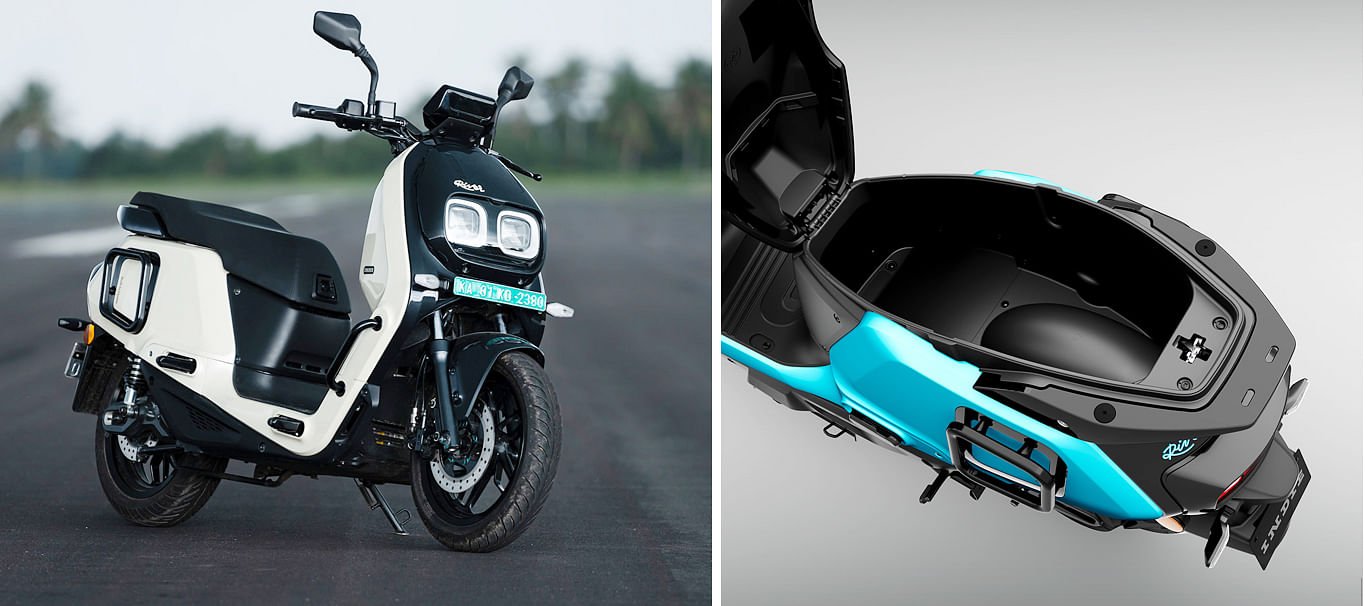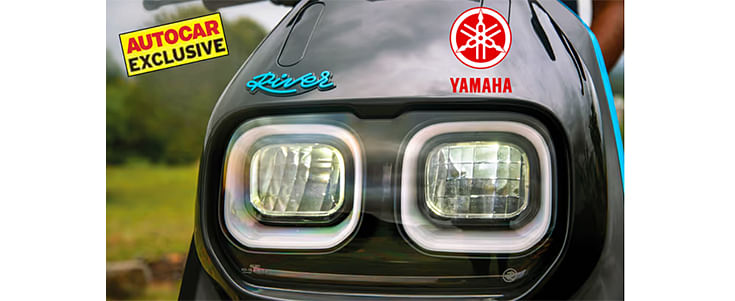Among the electric scooter startups that have seen strong sales in July 2025 is the Bengaluru-based electric scooter start-up River Mobility, which is witnessing growing demand for its sole product, the River Indie.
The company, which opened FY2026 by entering the Top 10 e-2W chart in 10th position in April 2025, was ninth in June, and also in July which saw it register best-ever monthly sales of 1,518 units, as per retail sales numbers on the Vahan portal.
 River Indie sales crossed 1,000 units a month for the first time in June 2025 and then in July. Cumulative January-July retails at 6,561 units are 71% of the 9,168 units sold till end-July.
River Indie sales crossed 1,000 units a month for the first time in June 2025 and then in July. Cumulative January-July retails at 6,561 units are 71% of the 9,168 units sold till end-July.
As the retail sales data table above depicts, River Mobility’s monthly retail sales hit the 600-unit mark for the first time in January this year and have risen consistently since then. Cumulative sales for the January to July 2025 period at 6,561 units place the EV startup on track to achieve 10,000-unit sales for the entire calendar year.
 Retail sales of the River Indie have risen after the refreshed model was introduced in November 2024. Key products highlights include 14-inch alloy wheels, telescopic suspension and twin hydraulic rear suspension.
Retail sales of the River Indie have risen after the refreshed model was introduced in November 2024. Key products highlights include 14-inch alloy wheels, telescopic suspension and twin hydraulic rear suspension.
REFRESHED INDIE GIVES SALES A NEW CHARGE
The first River Indie rolled out of the company’s modern manufacturing plant in Hoskote, Karnataka, on August 25, 2023. The facility, which has automated assembly lines for battery pack and vehicle assembly, is spread over 120,000 square feet and has a production capacity of 100,000 units per annum.
Somewhat radical looking compared to nearly all the e-scooters sold in India, the River Indie is a head-turner which ticks most of the boxes for a two-wheeled EV. Pre-bookings for the Indie were listed at Rs 125,000 (ex-showroom). However, demand for the Indie in all of CY2024 was tepid, with the highest monthly sales being the 370 units in October 2024.
In November 2024, just over a year after production began, River Mobility introduced an updated version featuring a single-speed gearbox with a chain drive, a first in its segment. The upgrade was essentially to enhance durability and reduce ownership costs. The refreshed Indie’s pricing, at Rs 142,999 (ex-showroom Bengaluru), though is higher compared to the original model.
The River Indie scooter, which uses a 4 kWh NMC battery pack, develops peak power of 6.7 kW (9hp) and 26 Nm torque. The 0-40kph sprint takes 3.7 seconds and top speed is 90kph. River Mobility claims the Indie has an IDC range of 161 kilometres on a single charge, with a 0-80% charge taking five hours.
 River Indie has 43 litres underseat storage space, which can house two helmets with ease and is the biggest for an electric scooter in India.
River Indie has 43 litres underseat storage space, which can house two helmets with ease and is the biggest for an electric scooter in India.
Other product highlights include lockable storage capacity of 55 litres – 12 litres in the glovebox and 43 litres under the seat (biggest for an e-scooter in India), front footpegs and 14-inch wheels to improve manoeuvrability and riding comfort. Like the first model, the updated zero-emission Indie has three riding modes — Eco, Ride, and Rush.
River Mobility has strategically focused on setting up its retail operations initially in southern and western India, both of which are the leading buyers of e-2Ws, before expanding operations to other parts of the country.
The EV startup is currently implementing a national sales network expansion programme and plans to be present in over 100 cities by 2026 through a mix of company-owned stores and partnerships. The company is especially ramping up its presence in Western and Northern India, aiming for a strong pan-India retail and service network. In South India, River, which currently operates 27 stores across Bengaluru, Hubli, Chennai, Coimbatore, Hyderabad, Kochi, Vellore, Tirpati and Visakhapatnam, will continue its expansion with new stores in Pondicherry and Calicut, among others.
 Codenamed RY01, the Yamaha electric scooter is expected to use the same powertrain and BMS as the River Indie.
Codenamed RY01, the Yamaha electric scooter is expected to use the same powertrain and BMS as the River Indie.
CO-DEVELOPED YAMAHA AND RIVER E-SCOOTER COMING SOON
Interestingly, in February 2024, Yamaha Motor Co, which has outlined a goal of reducing Scope 3 CO₂ emissions (emissions produced from the company’s value chain, ie: use of sold products) by 90% by 2050 compared to 2010, invested US$ 40 million in River’s Series B round of funding through third-party allotment. This made Yamaha among the early investors in River Mobility, which was founded in March 2021 by Aravind Mani and Vipin George. River Mobility’s list of investors includes Toyota Ventures, Al Futtaim Group, Lowercarbon Capital, Maniv Mobility, and Trucks VC.
Now, just a little over a year later, Yamaha and River Mobility have joined forces to co-develop and manufacture Yamaha’s first high-performance global electric scooter – codenamed RY01. Based on the River Indie, it will be Yamaha’s vehicle of entry in India’s booming e-2W market.
The RY01 is a joint development project between Yamaha’s engineering teams in Japan, the US, and Europe, and the River Mobility team in Bengaluru. The Yamaha e-2W is likely to be made at River’s facility in Hoskote. While Yamaha retains product ownership, River has been entrusted with full execution responsibilities—from R&D and battery integration to engineering and manufacturing.
The RYO1 was recently snapped testing in Bengaluru, which indicates market launch could be a few months away and possibly primed for the festive season.
Speaking to Autocar India recently on Yamaha’s collaboration with Yamaha, Itaru Otani, chairman of Yamaha Motor India Group of Companies said: “We are developing a more powerful EV for the global market but the speed is a little slow and it’s still in development. The global platform is one of our strategies and another one is a country-by-country approach, where regulations and customer needs are different. Therefore, the partnership with Gogoro in Taiwan and now we have invested in River Mobility. The purpose of the partnership with the local brand, like River or Gogoro, is that we get their development speed.”
ALSO READ:
Electric 2W sales cross 700,000 in first seven months of 2025
